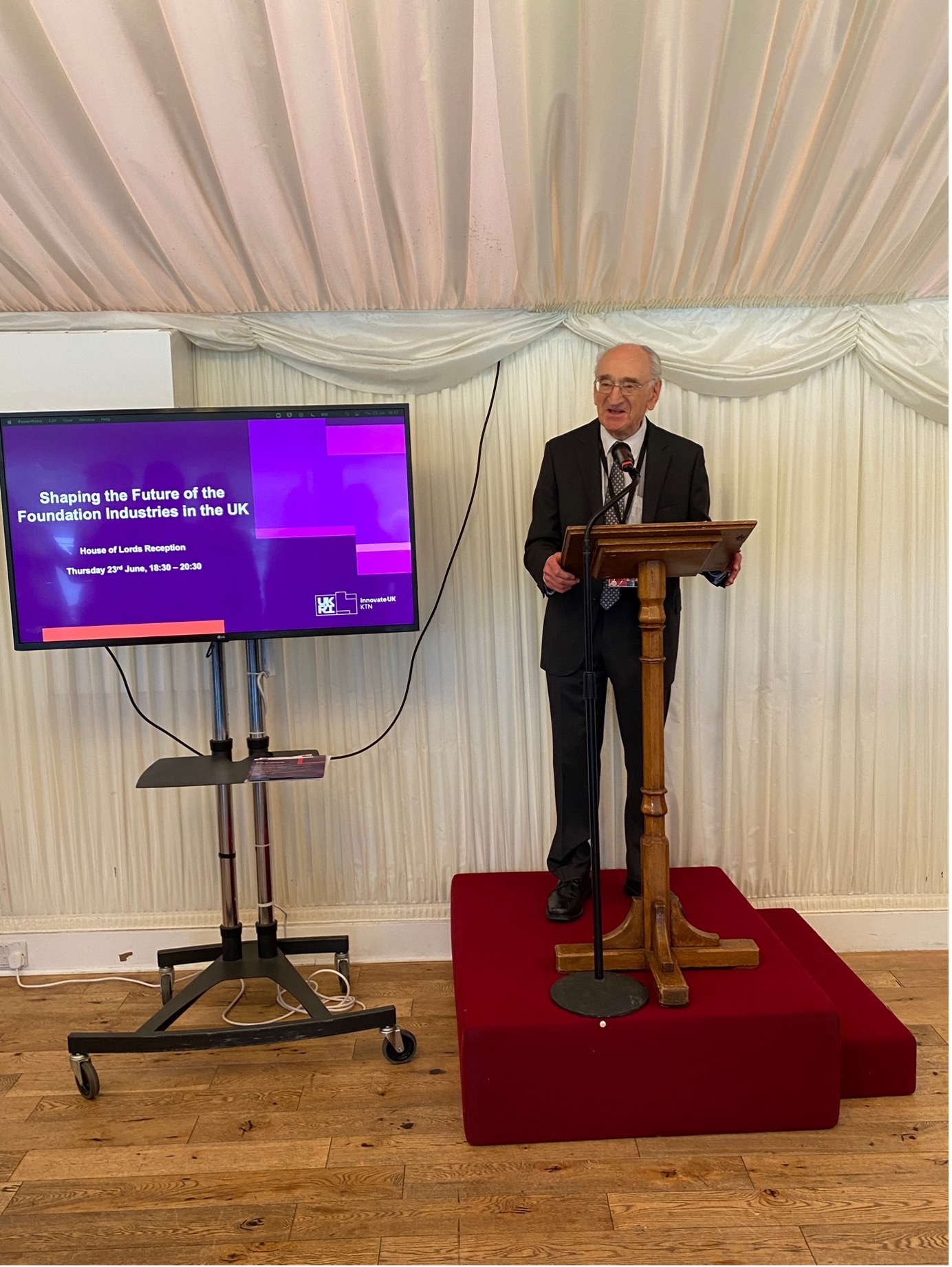Shaping the Future of the Foundation Industries – House of Lords

Lord Simon Haskel, Deputy Speaker of the House of Lords, welcomed KTN and Innovate UK for an evening reception on 23rd June.
The theme for the evening was Shaping the Future of the Foundation Industries in the UK, which was proudly sponsored by the Transforming Foundation Industries Challenge (TFI).
This was a great opportunity to showcase impact of the challenge so far to key stakeholders from both the public and private sectors. Being resource and energy intensive, the UK’s Foundation Industries have faced multiple challenges in the last few years including adoption of new technologies at scale as well as increasing pressure on supply chains and production capabilities.
Mike Biddle, Programme Director for the Industrial Strategy Challenge Fund, recognised the immense value the TFI Challenge holds to the UK’s future sustainable economy. Mike reiterated UKRI’s commitment to driving innovation, facilitating collaboration across a diverse range of industries and convening communities of research, business, talent, and investors to shape our future.

Bruce Adderley, Challenge Director for Transforming Foundation Industries, highlighted some early successes which meet the key aims of the challenge. These included partnering with the financial sector through the Investor Partnership Programme to increase co-investment (£25m so far) as well as driving university-led research through the TFI Network+ and Transforming Foundation Industries Research and Innovation Hub. The TFI Challenge has funded 60+ collaborative research and development projects looking to improve resource and energy efficiency as well as de-risking new technologies and processes.
In line with the forward-looking theme for the evening, we heard from Chris Williams at Industry Wales about the South Wales Industrial Cluster project. The implementation of industrial symbiosis and circular economy practices at scale will certainly be crucial to the UK’s ambition of having a ‘net zero’ carbon cluster for heavy industry.
Key to this ambition is Glass Futures’ Centre of Excellence currently being built in St. Helens, presented by Richard Katz, Director of Glass Futures. The TFI challenge has invested £15m into this pilot R&D facility which marks a new era in efficient and environmentally conscious glass making. The other 5 sectors can also take advantage of this scaled-down manufacturing facility to research process improvements and carry out low-carbon fuel trials, including hydrogen.
Continuing to establish forward-thinking and creating collaborations across the Foundation Industries is necessary to achieve common decarbonisation goals. Su Varma from NSG Pilkington presented a cross-sector project on a computational formulation technique, involving the glass, chemicals and metals industries, to produce high-value products with lower energy consumption. Another cross-sector innovation is heat recovery. Professor Hussam Jouhara of Brunel University London – who has designed and manufactured heat recovery technologies for various industries such as food, electronics and ceramics – presented flat heat pipe technology for waste heat recovery in the steel and aluminium sectors.
Following these talks, there were plenty of opportunities for networking for the 80 or so delegates at this invite-only event, as they enjoyed the warm weather and views over the Thames from Westminster.
We hope to continue these conversations, particularly around Net Zero and the 2050 vision for the six sectors. Join the Transforming Foundation Industries Challenge at MRE 2022.



